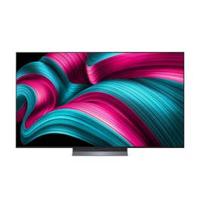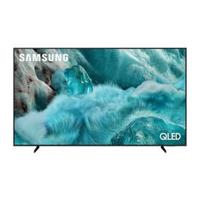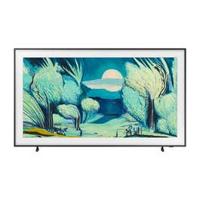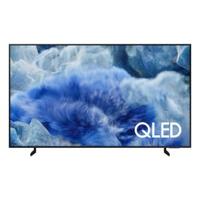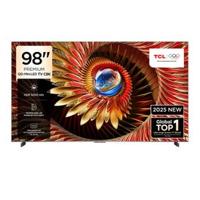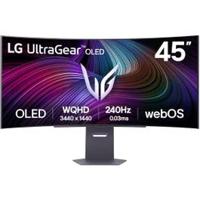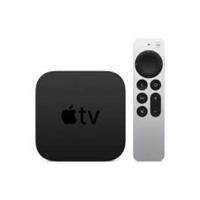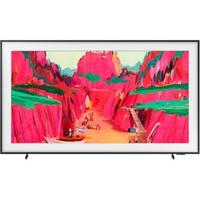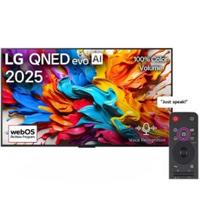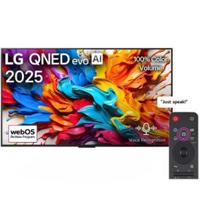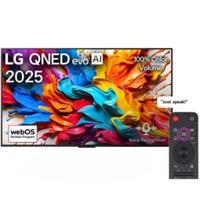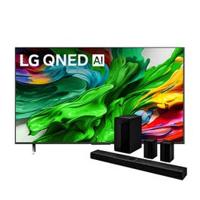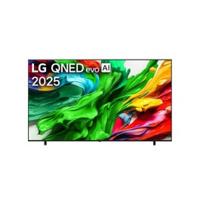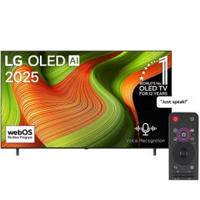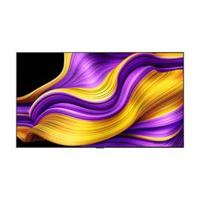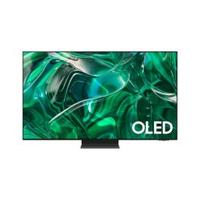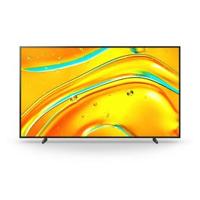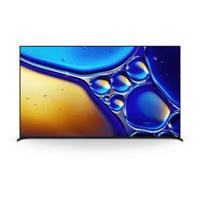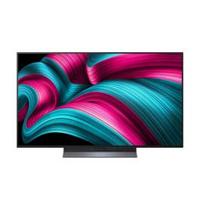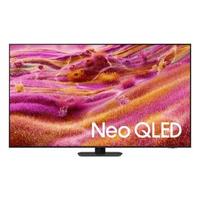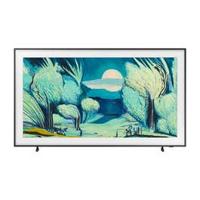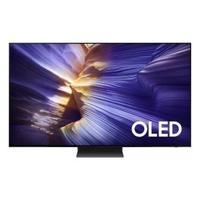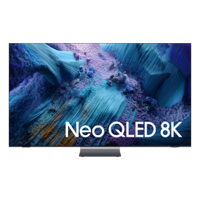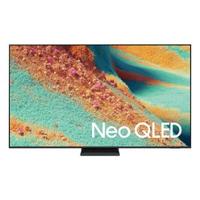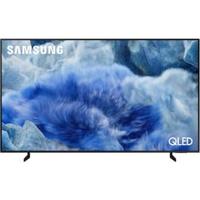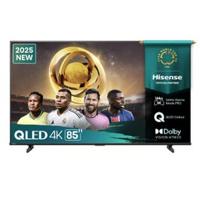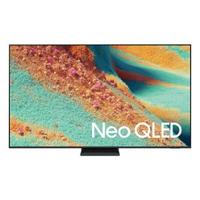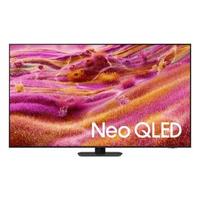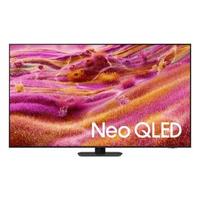About OLED TVs
With superior viewing angles, perfect blacks, infinite contrast ratios, and fewer image artefacts, an OLED TV outperforms even the most advanced television sets. In other words, they give you the best–looking TV image that money can buy. OLED TVs certainly has the potential to be a game-changer in the television industry. But, aren’t you curious how they came into being?
Alan Heeger, Alan MacDiarmid, and Hideki Shirakawa discovered organic semiconductors in the mid-1970s. They also shared a Nobel prize in chemistry in 2000. Also, by 1970, Digby Williams and Martin Schadt managed to create what they called “a simple organic electroluminescent diode” using anthracene. However, two researchers Ching Chang and Steven Van Slyke, working at Eastman Kodak research labs, developed the first efficient OLED in 1987. They described them as a novel electroluminescent device. It was constructed using organic materials as the emitting elements. Since then, up till now, the OLED technology has never looked back and has been steadily progressing. This guide aims at giving you a sneak peek into what the OLEDs are and tips on how you can purchase them effortlessly.
Some essential things you must know about the OLED TVs
You now know that OLED technology is relatively new when compared to the long-established LCD. Broadly speaking, you can use the OLED displays wherever you use LCDs, in television sets, computer sets and even in cell phone displays. Even though they are applied in many electronic devices, one of their most popular applications of them is in television sets. In short, OLED is a big thing in home entertainment. Therefore, today, let us take you through the best home entertainment devices – OLED TVs. Below enlisted are a few such fundamental things you ought to know about an OLED TV before you head out to purchase them. So, without much ado, let us embark on this journey to explore everything about OLED TVs.
The working principle of an OLED TV
An OLED TV uses OLED display technology. The acronym OLED typically stands for ‘organic light-emitting diode’. Usually, it comes with a thin film of carbon-based organic compounds. This is originally the organic part of the OLED. It is normally sandwiched between two electrodes and emits light when fed with an electric current. It is like heating elements in a toaster, but with better resolution and less heat. You call this effect electroluminescence. In other words, each tiny pixel of an OLED screen creates light depending on how much light you feed them with. Since the OLED generates its own light, it doesn’t require a backlighting system as in the case of LEDs and LCDs. Moreover, it can produce true blacks too. Therefore, its contrast ratio is technically infinite.
The essential features of an OLED TV
Indeed, OLED panels are used to create some of the most stunning TVs ever. These TVs combine great image quality with the thinnest ever set. And this is only the beginning. Several designs feature mostly stand out with these OLED TVs. For starters, it has a slightly curved screen. However, the screen is incredibly thin and comes with a transparent base. Moreover, it also has a dark black rimless screen with a bezel. Furthermore, OLED TV is a winner when it comes to the contrast ratio. That’s because it can get extremely bright, plus it can create true blacks without any blooming. This high contrasting ratio in OLED TV makes the picture quality more realistic. Moreover, OLED TV doesn’t have the off-axis issue. That means the image looks the same even from extreme angles.
OLED TVs good or bad
As mentioned earlier, OLED TVs can turn off pixels. This means a better contrast ratio and black colour representation. Hence, it saves power too. Although we do not see the difference in television sets, it is a useful trait for battery-powered smartphones with OLED displays. Well, since engineers require fewer components to manufacture OLED displays, they can bend them without any jitters. Also, you might be quite surprised that OLED TV has wide viewing angles. No matter how great OLED TVs are, they come with a fair share of demerits too. For starters, an OLED TV is expensive. Also, by leaving a static image on the OLED displays for prolonged periods leads to burn-ins. Moreover, since they depend on organic LED, colour degradation is highly possible.
OLED Vs LED
Some people say that OLED displays are the future. But is it really that much better than its LED and LCD counterparts? Well, let us find out! In a nutshell, an LED screen uses a backlight to illuminate its pixels. But OLED’s pixels produce light of their own. Therefore, you can control the light of the OLEDs display, pixel by pixel. This sort of ingenuity isn’t possible with LED/LCD displays. Moreover, the LED/LCD screens are much brighter than OLEDs. However, the LEDs and LCDs do not create true blacks, whereas OLEDs does. That’s also why the contrast ratio on OLED TV is very high. Though it is a close call, no matter which one you side with, know that both technologies have matured considerably over the past years.
Tips on how to buy OLED TVs online
Now that you know what precisely an OLED TV is, it is time that you own one. However, there are seemingly different models, brands, features, and brands to choose from. Moreover, you encounter gibberish tech jargon. Amidst all this, getting the best OLED TV is a bit challenging. It is hard to know which features are important and which ones are just blustered. Luckily, we are here to help. We’ve scoured the heaps of OLED televisions online to help you buy one without losing your mind.
- Do thorough research – Of course, TV buying is a cumbersome task. That’s why it is imperative to know the subject well before you are going to shop. As a general rule, try to avoid shopping from brands you’ve never heard of before. Before, you start shopping, remember that there is no such model that’s agreed to be the best. However, brands like LG, Sony, Samsung, Panasonic, Philips, and TCL now sell some of the best OLED TVs.
- Choose your size – While bigger TVs are in trend right now, bigger isn’t always the best. To start, measure the place where the OLED TV will be placed. This will let you know exactly how much space you have to work with. Well, you do not want an OLED TV that does not fit your space. Next, find the best screen size that fits your place. It is great that the biggest OLED TV you can buy online in Dubai is just a click away. But the ideal TV screen size is 7.5 times your viewing distance.
- Choose a budget – The TV prices can range from several hundred to tens and thousands of dollars. The most expensive ones are LCD and OLEDs. That’s why it is essential to fix a budget for yourself before you head out to purchase your OLED TV. Also, check out various models and designs of OLED. They may be available at different price points. Well, investing a couple of extra bucks on an OLED TV wouldn’t go in vain. That’s because you are paying for the highest picture quality.
- Look out for deals – Well, if you are a saver, then check out deals from various brands and online stores. Discounts and deals pop up now and then. This way you can buy your favourite OLED TV at a low price. Also, if you are shopping online, then remember to check the shipping charges. Also, you can sign up on various online stores to regularly receive updates on their deals and offers.
- Check out product reviews – Well, the last and most important thing to do before shopping for your OLED is to check their reviews online. When checking for reviews, be careful and vigilant about checking the right reviews for the right models. You do not want to mix up accidentally. No matter what you are buying, check the customer reviews. This helps you to have a fair idea of the OLED TV you intend to purchase. For more popular models, you may also be able to find publisher reviews.
OLEDs have been popular and in the market since 2012. Several manufacturers have tackled the technology over the years. Earlier only brands like Samsung and LG used to create OLEDs. Unfortunately, due to its high pricing and difficulty to produce, Samsung dropped the idea of this technology. However, now, they are getting cheaper. But they are still a long way from what’s called affordable. But such awesome features the trend is always going to be good news for your consumers.
Question & Answer
Will OLED TV prices drop in 2019?
So, you’ve got an eye on those pricey OLED TVs? Of course, they have stayed away from those with modest budgets, which is very well going to change soon. Earlier only brands like LG and Samsung produced the OLED TVs. However, these days, many other brands have come up with this technology. Now, this is one of the reasons why the price points of different OLED TV prices have been dropping marginally. But, remember that the future of OLED will likely lie in the technology’s current dominance.
Do OLED TVs cause headaches?
People usually motion in different ways. Now, this depends on the content of the screen too. An OLED TV is typically smoother than any other TV out there. It has a higher frame rate content. Therefore, it can feel different. Generally, this doesn’t cause any headaches. However, if you have sensitive vision and are more susceptible to motion, then spending longer periods on OLED TVs is not advisable. As a matter of fact, spending extended time on any TV is not recommended.
Can you repair an OLED TV?
Glitches are an unavoidable menace with electronic devices. However, repairing them is the tricky part. If you want to repair your OLED TV, you must first identify the underlying cause of the damage. For example, if you encounter small cracks along the side of the television, you could repair them. However, if you encounter screen burn-ins or a completely broken screen, then you might want to call up a professional to do the job for you.
What model of LG OLED TV is available to buy?
LG and Samsung were the very first brands to introduce OLED TVs to the market. Though Samsung stopped producing them, LG still does. The very first OLED TV from LG arrived in 2013. Ever since then the brand has blazed a trail of eye-catchy OLED TVs. LG offers you OLED TVs of different sizes and models. A few popular ones include B8 an entry-level model. Then the C8, E8 followed by the G8 series. While the latest models come from the W8 series that typically termed as wafer-thin or ‘wallpaper’ OLED TV.
Which OLED TV is best for gaming?
In general, the OLEDs have a fast response time and good low input lag. Moreover, they accept different types of input signals. This is great for gaming. Furthermore, they come with exciting gaming features like optional motion interpolation with low input lag and variable refresh rate. Some of the conventional models of OLED TV that are best for gaming are LG B8, LG C9, and Sony A9G OLED. There are indeed many more options out there. A little patience and research will get you the best gaming TV out there.
So, are you ready to retire your old TV and happy to opt for an OLED TV? Then check out our leading product search engine . It features an extensive collection of high-quality OLEDs including OLED TV for sports and OLEDs under 50 inches from popular brands. Moreover, you can shop them all from 500 plus online stores. So, what are you waiting for? Hit the button! Because OLEDs are not just worth the upgrade but are now affordable too.

